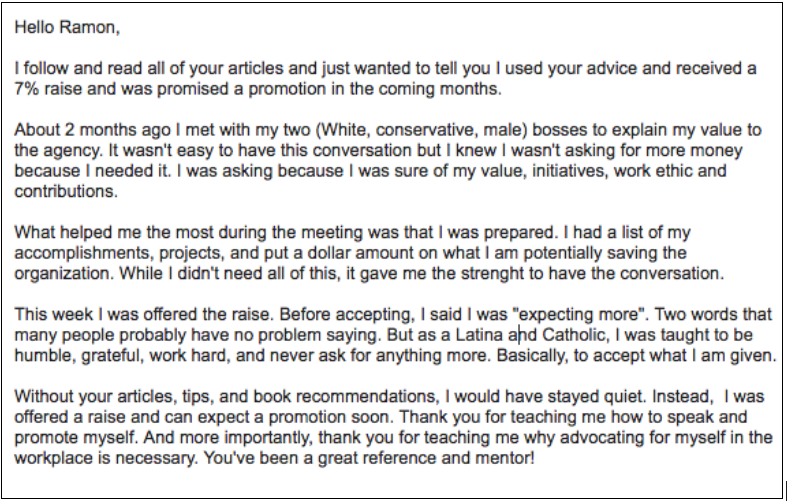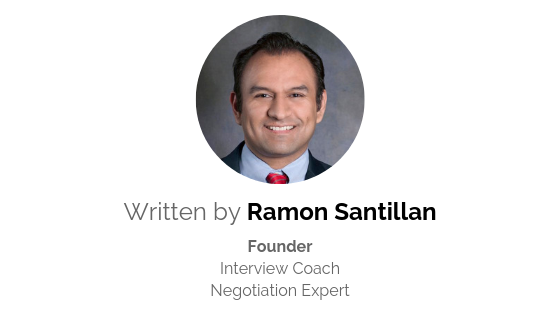I’ll keep today’s post brief since I think it’s a powerful message that doesn’t need much explaining to make a point.
It’s about getting rejected as much as it is about moving on.
What do you do if you’re really interested in an opportunity (job/client/date) but you haven’t heard from them in some time?
Many times when we are chasing a client, a job, or a date, we get so fixated on the perfect outcome that we forget we may get rejected.
Actually we don’t forget as much as we ignore a potential rejection.
We think about how awesome it will be to have this great client that loves our work, or this cool job that will be the obvious stepping stone to the next opportunity, or even how this one girl checks off all of our “boxes” in the dream girl checklist.
We think that if we get a “no” our hopes and dreams will disappear. So what do we do?
Nothing.
We choose to not do a damn thing so that we won’t hear a “No”. Granted, we won’t hear a “Yes” either but as long as you don’t get rejected, we still have hope.
It’s like checking your lottery ticket 3 days after the drawing. You do it because you know that as soon as you find out that you didn’t win you lose all hope. You rather not check your ticket for a couple more days just so you’ll have some hope alive that you’re a millionaire.
“No” doesn’t mean “Never”. It just means “Not Right Now”.
As I was writing this, I literally got an email asking me how to handle this same situation.
“There is a job I really like and I interviewed for. They said they were very interested but it’s been 2 weeks since I’ve heard from them. What do I do?”
Everyone knows what to do. You call them.
What they’re really asking is “I’m afraid they’re going to say no. What do I do?”
Sometimes we get so fixated on a particular outcome that we forget about the ultimate goal.
Yes. Maybe this job will be a great stepping stone to the next opportunity but remember that this isn’t the only way to the final goal.
Whether it’s a job, a client, or a special person, these are all what I call opportunities that present themselves to you. Below, I’ll refer to any of the three situations as opportunities and you can exchange for the word that best fits your current situation.
3 Things to Keep in Mind When You Get Rejected
“No” doesn’t mean “Never”. It just means “Not Right Now”
Years ago, I had this HUGE crush on this one girl. She seemed like she was the perfect match for me. Gorgeous, smart, funny, etc, etc.
After years of missed opportunities, the stars aligned and a time came where we were both single and I finally mustered up the courage to ask her out.
I still remember the day, time, and place when I called her.
“Hey, What are you doing this weekend. I’d like to take you out to dinner and talk with you.”
Her response: “I can’t. I’m going to be out of town”
Me (in my head): “Whatever. She’s probably just letting me down easy”
Her: “But we can go out next week”
Many times we think that a “No” puts us out of the race immediately and forever. Nothing can be further from the truth.
We are self-centered creatures and tend to think of ourselves as the only deciding factor in others’ decision making process. In reality, we are just a small part of the equation.
Sometimes there are external factors that affect our decisions. A client with a small budget, a hiring freeze, or even, in my example above, other plans.
Just remember: A. It’s not always about you. and B. Never Say Never
This isn’t the only path to your ultimate goal
When I was in college there was this prestigious program called PPA (Professional Program in Accounting) where you could get your bachelors and masters in accounting in 5 years. To this date it is a prestigious program and the best way to start off your accounting career. There is an application process to be accepted and I pulled all the stops when I applied. I turned in a packet 5 inches thick with letters of recommendations, essays, completed projects, and anything else I thought would help me get accepted.
My goal was to get accepted, which would put me in a level playing field with all the other intern candidates and get a Big 4 internship which would lead to a full time job in a Big 4 Accounting firm.
I had it all planned out.
Except I didn’t get accepted.
That was one of those times where I thought I was destined to be a failure. I even thought I should just quit college and go back home. I was never going to get an internship much less a full time position so why even waste my time.
To add insult to injury, a week later, a director for one of those Big 4 told me point blank that I “would never get an internship with any of the Big 4 without the PPA”.
I was crushed.
I gave myself 1 afternoon to throw a 1 person pity party. I was allowed to cry, yell, blame, accuse, and anything else I wanted to do but for only 1 afternoon.
When I was done I realized that those in the application committee didn’t really know me. They just saw some application and probably based their decision on some GPA they saw and that’s it.
Just because they could decide on a particular point in my life didn’t mean they could decide on my whole life.
Just because I didn’t get into the PPA didn’t mean I couldn’t get an internship or a full time job with one of the Big 4.
All it meant was that I had to take a different route.
Two months later I had an internship with one of the Big 4 beating out several hundred of those PPA students. When I graduated, I had my choice of doing industry or Big 4 and I chose industry. 3 years after that I went back to Big 4. Why? Because I could.
I had made my own path.
You may not be right for the Opportunity or the opportunity not be right for you
Oftentimes we don’t go get what we want and instead just grab what we’re handed. It’s an easy and practical way to go through life. Particularly if we were raised with this “Be grateful for what you have” mantra.
If someone offers you a job, you take it without negotiating a salary or without firs figuring out if it’s right for you.
If someone asks you out, you automatically say yes since you don’t have anything else to do.
If a client has a project that’s not interesting to you or doesn’t pay what you want to get paid, you still take it because money is money.
We all go through similar situations every day where instead of getting what we want, we get what’s given to us.
I’m going to tell you something that’s helped me improve my life and in a weird way improve the opportunities that come to me.
I started saying “No”
I become more selective with what I did, with whom, for whom, and why. I used to attend every event I was invited to, go over everyone’s resume (for free), and generally just say yes to anything that was offered to me.
I started to realize that this wasn’t helping me. I was spreading myself too thin and I was doing projects that didn’t interest me. This prevented me from helping people who really valued me, my knowledge, and the results I can get for them.
By the way, I’ve coached several entrepreneurs to help them build their confidence and learn how to better value themselves and their services. Do you know anyone that could use my help? Forward them this email.
Nowadays, I say “No” more often than I say yes and I am definitely more happier. Which brings me to my next point….
Being Rejected is Liberating. It allows you to move on and focus on other opportunities
Being told “No” is not as bad as it sounds. Knowing that an opportunity is no longer on the table frees you from having to worry/think/focus on it and move on to the next one.
The position has been filled? Great. I can start focusing my energy on another position instead of taking up mental space on a position that is no longer available.
This is a version of “failing fast”. The idea behind “failing fast” is that the sooner you find out something isn’t working, you move on to the next idea/plan. No need to spin your wheels on something that isn’t going anywhere.
Here is a little 3 step formula for this process:
Call them
Get an Answer
Move on
What are your thoughts? Do you feel like the fear of hearing a “No” keeps you from finding out? Do you think waiting several days before checking your lottery ticket helps?
Let me know. I want to know what you think. I read every email. Promise!
Be Bold!
Ramon
PS: This is one of the questions I answer in my new book that's coming out next month. I'll give you details on what it covers and pre sale pricing next week.
P.P.S. And, whenever you’re ready... here are 4 ways we can help you turn job search anxiety into interviews, job offers, and self-confidence.
1. Watch my free charisma challenge course
For the next 3 days, I'm going to show you the steps you need to know to start building your network one day at a time. You will learn how to choose the right networking event for you that fits your personality and your career goals. You will know how to approach strangers and you will know how to start and end a conversation. You will know how to follow up. -> Click Here
2. Download my Instant Interview Coach E-book
I wrote this book to answer the most pressing questions people have about interviewing, how to manage their job search, and the best ways to answer the difficult interview questions you might get ("Why are you looking to switch jobs?"). I am only able to work with a limited number of people a month so this book is the perfect way to get all the advice and knowledge you need to be successful without having to book an appointment with me. Download the e-book by clicking here - > Instant Interview Coach: Your most pressing questions about interviewing answered!
3. Join our FREE Official Persuasive Interview Parents group and connect with other parents who are committed to helping their child find their dream co-op -> Click Here
4. Work with me 1-on-1
If you’d like to work directly with me to find your dream co-op... just schedule your complimentary “Persuasive Interview Consulting” Call with me so we can clarify your fastest path to finding your dream co-op and create a strategy for you to make it happen... Schedule your FREE call with me here -> Click Here To Schedule
































